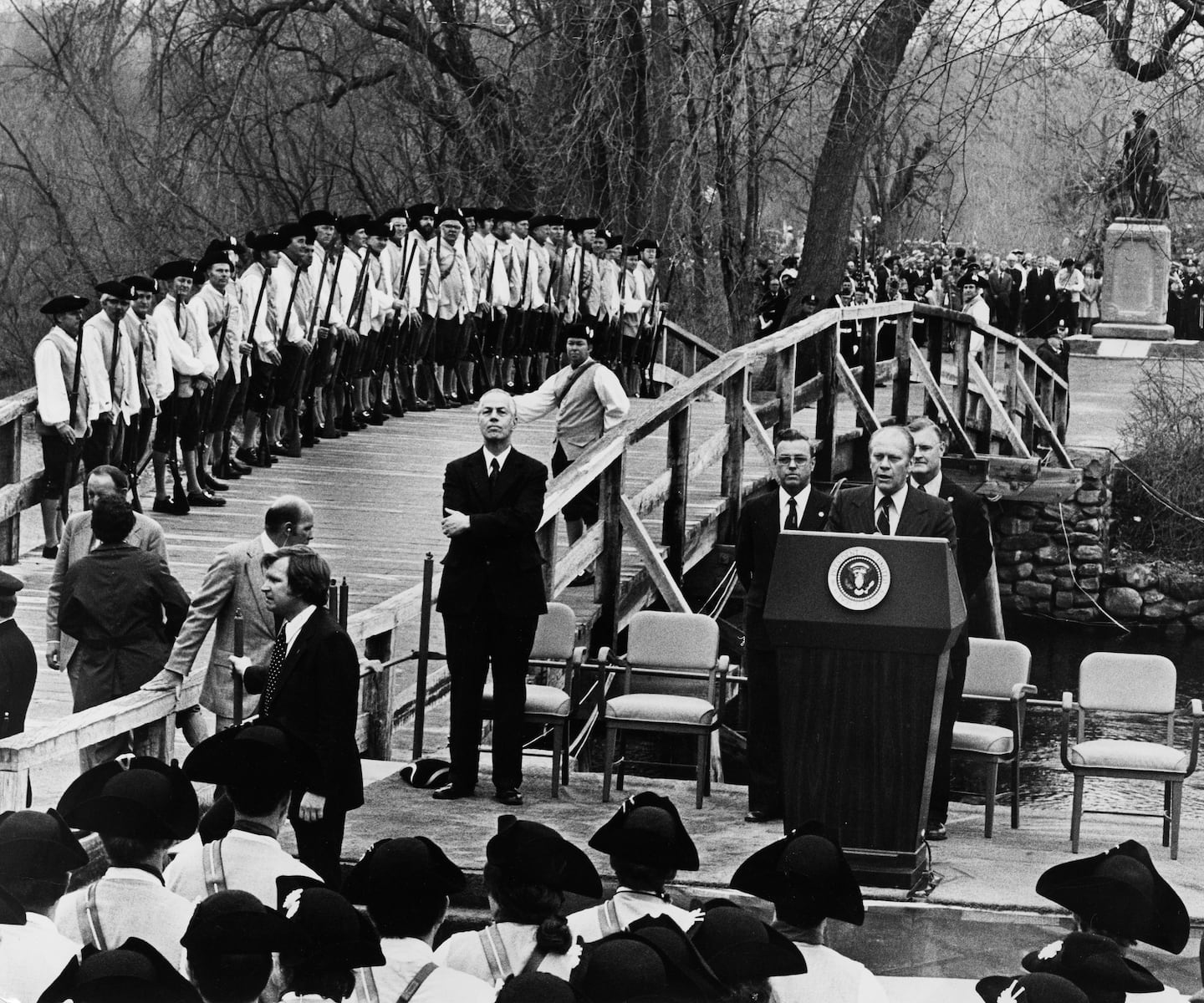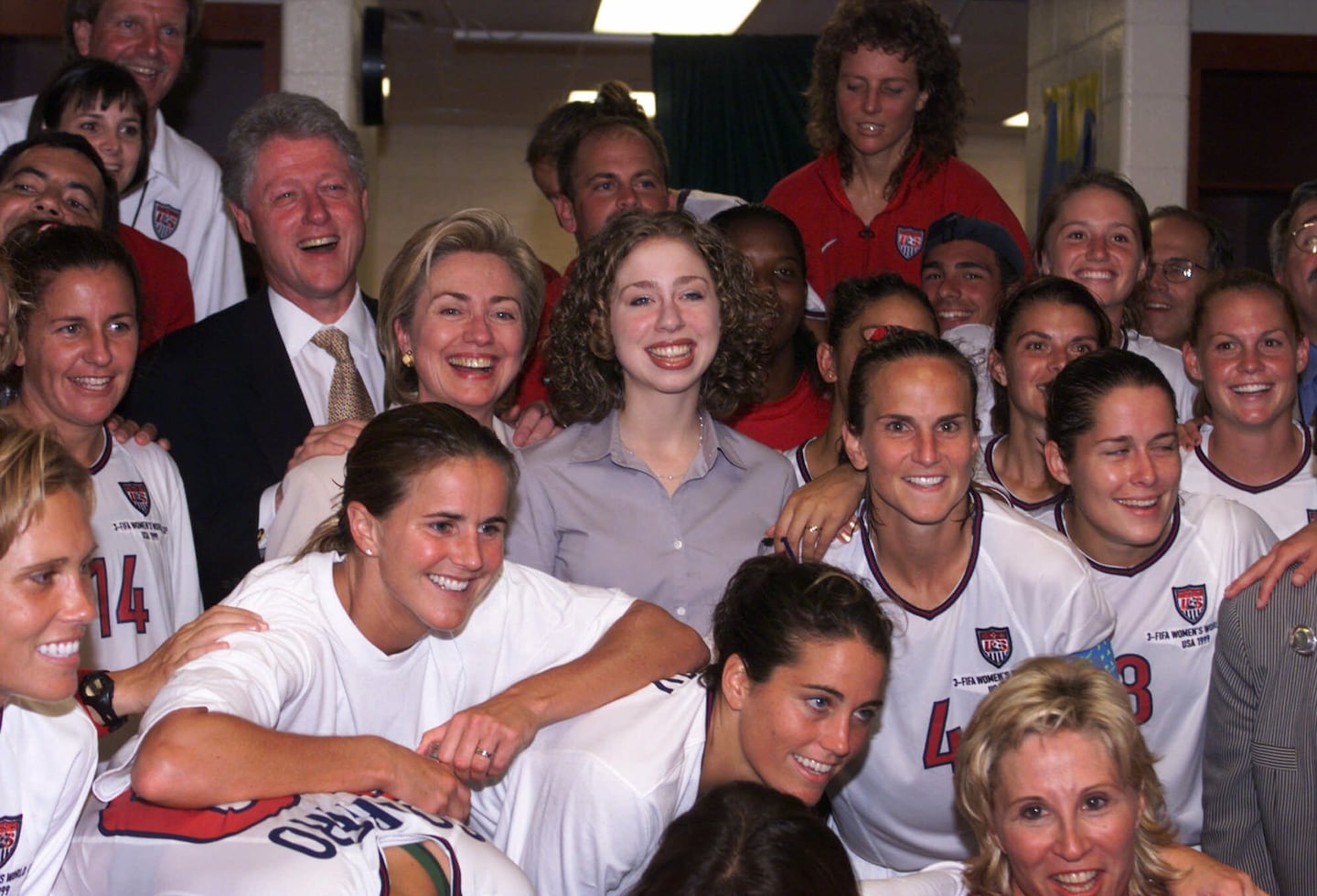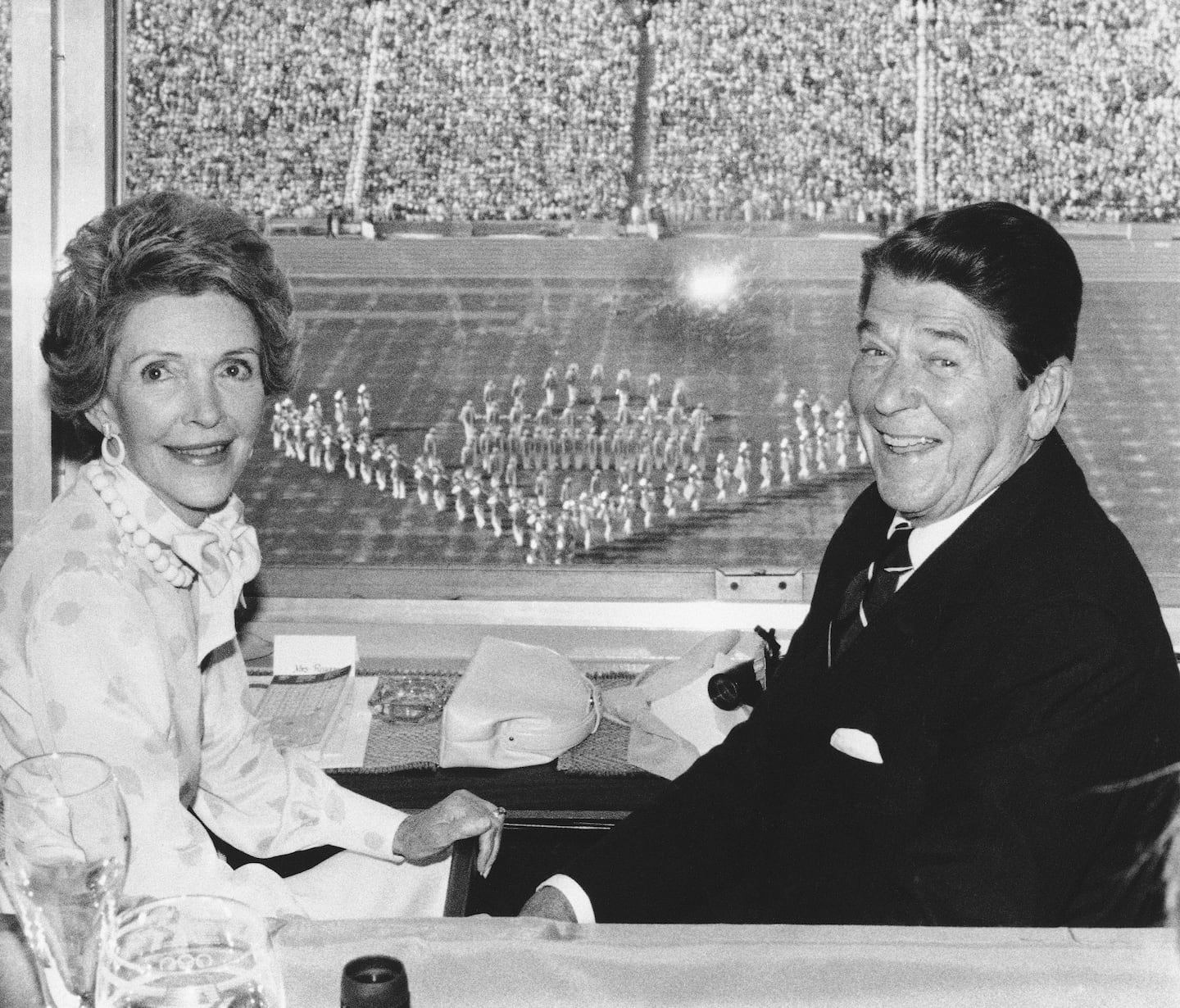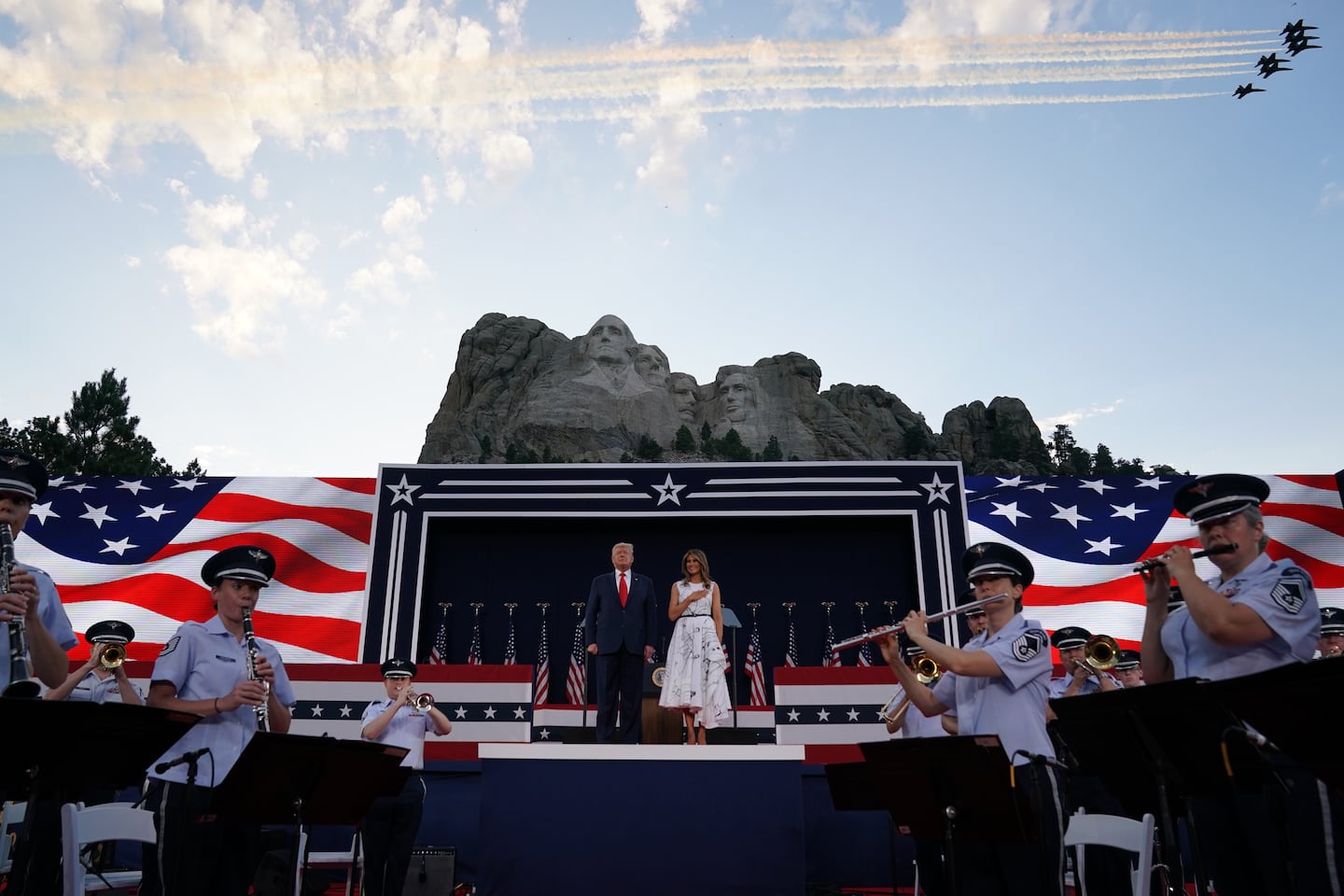The next president probably will play a similar high-profile role during equally tumultuous times as America celebrates its 250th birthday on July 4, 2026. On top of that, Kamala Harris or Donald Trump — both big sports fans — will be in office as the United States hosts the 2026 men’s World Cup (along with Canada and Mexico) and the 2028 Summer Olympics in Los Angeles.
The unprecedented trio of major events in one four-year term offers whoever wins the Nov. 5 election the ability to shape the image they project to the country and the world during a time when American history and sports have become cultural flashpoints. And particularly with the so-called semiquincentennial celebration, those images could vary widely depending on whether Harris or Trump is in office.
“It’s a gigantic difference of how US history will be perceived on the 250th anniversary depending on who’s president,” said Douglas Brinkley, a presidential historian at Rice University. “Trump has a very Mount Rushmore approach to things, great men chiseled in stone or marble…. Harris will be more multicultural and inclusive.”

Ford used the bicentennial to try to unify the nation after the Vietnam War and the Watergate scandal that elevated him to the Oval Office after President Richard Nixon was forced to resign, Brinkley said.
“One hopes that we can pull together as a country and not be divided in a cultural war,” Brinkley said of America’s 250th anniversary.
The president ostensibly has a limited role in those upcoming major events, as they all are run by organizations outside the direct influence of the White House. One, the nonpartisan US Semiquincentennial Commission created by Congress in 2016, has already started a series of events in conjunction with state and local organizations, including the 250th anniversary of the Boston Tea Party last December.
“We anticipate that the future president will be very much engaged,” said commission chair Rosie Rios, who served as US treasurer during the Obama administration.
America’s 250th anniversary is on Trump’s radar.
In a video last year, he unveiled his own plans for what he called “a most spectacular birthday party,” harkening back to the grandiose July Fourth celebrations when he was in office that included a 2019 speech at the Lincoln Memorial amid tanks and military flyovers.
If elected, Trump promised to convene a White House task force to coordinate with state and local governments on a year of festivities leading up to July 4, 2026. He also said he wanted to create a “Great American State Fair” in Iowa to “showcase the glory of every state in the union,” host a sporting contest for high school athletes called Patriot Games, and sign an executive order to create a “National Garden of American Heroes,” which he proposed in his first term.
“As we chart a course toward the next 250 years, let us come together and rededicate ourselves as one nation, under God,” Trump said.
Trump campaign spokespeople did not respond to email requests for comment.
Matthew Spalding, who was executive director of “The President’s Advisory 1776 Commission” that Trump created in late 2020 to restore “patriotic education” after the racial justice protests, said Harris and Trump have different perspectives on the nation’s founding that will affect what they emphasize in 2026.
“If Harris wins the election, her administration will embrace the revolutionary side of the American Revolution in order to replace 1776 with a progressive agenda of identity politics,” Spalding, a constitutional government professor at Hillsdale College, said in a written statement. “If Trump wins, we will see a celebration of the Americanism side of the American Revolution and of a nation that, despite its flaws and imperfections, has done more than any other to advance the principles of 1776.”
Harris hasn’t spoken publicly about the 250th anniversary and her campaign declined email requests for comment.
But Libby Schaaf, a former mayor of Oakland, Calif., and a longtime friend, agreed Harris’s approach would be much different than Trump’s.
“I think President Harris would infuse the celebration with joy and reverence. Trump would infuse it with bombastic superiority,” Schaaf said. “Freedom has been her calling card. It’s been her kind of highest value in this campaign and what better way to put that fully on parade than America’s own birthday party.”
She predicted that Harris would respect the extensive planning underway. John Garrison Marks, director of research and strategic initiatives at the American Association for State and Local History, agreed.
“If Harris wins, I think we can probably expect a continuation of the work that the commission is already doing, especially its emphasis on creating the largest and most inclusive commemoration in American history,” Marks said. “Now, if Trump wins, I don’t think he will completely upend all the work that the commission has done to this point, but he may lean more into the celebratory aspect of the commemoration.”
Marks expects Trump would focus on one big event, like his Independence Day commemorations in Washington in 2019 and at Mount Rushmore in 2020.

The World Cup in 2026, with a match scheduled for July Fourth in Philadelphia, will amplify the attention on the United States during its historic anniversary. And two years later, the next president will have the honor of formally opening the Summer Olympics in Los Angeles.
Aside from attending some World Cup matches or Olympic events, as previous presidents have when the events have been held here, there would be no other official role for Harris or Trump.
But Trump has inserted himself into sports controversies in the past. When he was president, Trump publicly feuded with some high-profile professional athletes when players kneeled during the national anthem to protest America’s racial disparities.
Just this summer, Trump falsely claimed two female gold medal boxers at the Paris Olympics were men after public scrutiny regarding their gender. And he called the opening ceremony of those games “a disgrace” because of a scene involving drag performers that conservatives claim mocked The Last Supper. The ceremony’s artistic designer said it was an interpretation of a scene involving the Greek god Dionysus.
“We won’t be having a Last Supper as portrayed the way they portrayed it the other night,” Trump said on Fox News of the LA Olympics opening ceremony.

Public criticism like that from Trump is unlikely to affect those major global sporting events, said Dan Lebowitz, executive director of the Center for the Study of Sport in Society at Northeastern University.
“I think the world already has an opinion of Trump. They’ve gone through a presidency of his. However he chooses to embrace the Olympics, I don’t think is going to change the messaging of the larger games,” he said. “In my mind, the games are bigger than that. The World Cup is bigger than that.”
Jim Puzzanghera can be reached at jim.puzzanghera@globe.com. Follow him @JimPuzzanghera.






